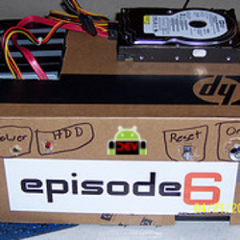Unit Testing
Apache Groovy
org.apache.groovy : groovy-testngGroovy: A powerful multi-faceted language for the JVM
Last Version: 4.0.3
Release Date:Last Version: 2.0.27
Release Date:org-netbeans-modules-testng-ui
org.netbeans.modules : org-netbeans-modules-testng-uiApache NetBeans is an integrated development environment, tooling platform, and application framework.
Last Version: RELEASE140
Release Date:FluentLenium Spring TestNG
org.fluentlenium : fluentlenium-spring-testngTestNG Adapter for FluentLenium
Last Version: 5.0.4
Release Date:Tycho Surefire OSGi TestNG Runner
org.eclipse.tycho : org.eclipse.tycho.surefire.testngTycho integrates Maven with Eclipse and OSGi
Last Version: 2.7.3
Release Date:PowerMock
org.powermock : powermock-module-testng-agentPowerMock module for TestNG with using Javaagent.
Last Version: 2.0.9
Release Date:Last Version: 0.0.114
Release Date:Last Version: 4.0.0-M2
Release Date:Last Version: 4.0.0-M3
Release Date:org-netbeans-modules-testng-maven
org.netbeans.modules : org-netbeans-modules-testng-mavenApache NetBeans is an integrated development environment, tooling platform, and application framework.
Last Version: RELEASE140
Release Date:Last Version: 2.0.2
Release Date:Last Version: 356
Release Date:TestNG Metrics
com.github.adiralashiva8 : testng-metricsA HTML Report of test executions via TestNG
Last Version: 1.6
Release Date:integration-test-testng
io.toolisticon.cute : integration-test-testngPlease refer to https://github.com/toolisticon/cute
Last Version: 0.12.0
Release Date:Last Version: 1.0.43
Release Date:Maven Test Support :: Maven Verifier for TestNG
de.lightful.maven.testing : maven-verifier-testngTestNG wrapper around maven-verifier, supporting integrational tests of maven plugins.
Last Version: 0.2.0
Release Date:org-netbeans-modules-testng-ant
org.netbeans.modules : org-netbeans-modules-testng-antApache NetBeans is an integrated development environment, tooling platform, and application framework.
Last Version: RELEASE140
Release Date:test-testng
com.fitbur.test : test-testngFitburIO Framework is an open source Java framework that utilizes HK2 dependency injection framework to create resuable components. The framework's core features can be used by any Java application though it's more ideal to use it in-conjunction with Jersey 2.0 JAX-RS to build restful services.
Last Version: 0.5.0
Release Date:Arquillian TestNG Standalone
org.arquillian.universe : arquillian-testng-standaloneArquillian Universe
Last Version: 1.5.0.0
Release Date:Last Version: 4.0.0-M3
Release Date:Last Version: 1.0.1
Release Date:com.automation.remarks.video-recorder
com.automation-remarks : video-recorder-testngVideo Recorder is a library that allows to record selenium tests
Last Version: 2.0
Release Date:cucumber-testng-factory
com.theoryinpractise : cucumber-testng-factoryTestNG Integration for the Cucumeber-JVM Testing Framework
Last Version: 1.0.1
Release Date:Last Version: 4.0.0-M3
Release Date:Unitils TestNG classes
org.unitils : unitils-testngUnitils provides utilities to further simplify unit-testing with JUnit, DBUnit, EasyMock Hibernate and Spring. The goal is to make unit-testing easy and maintainable by offering utilities such as automatic DB-schema maintainance and equality assertion through reflection.
Last Version: 3.4.6
Release Date:TestNG DataBinding Utilities
net.sf.testngdatabind : testng-databinding-utilData binding framework utilities
Last Version: 2.0
Release Date:Last Version: 0.1.25
Release Date:Last Version: 1.0
Release Date:Specnaz
org.specnaz : specnaz-testngLibrary for writing beautiful, RSpec/Jasmine/Mocha/Jest-style specifications in Java, Kotlin and Groovy
Last Version: 1.5.3
Release Date:mockspresso-easymock-powermock
com.episode6.hackit.mockspresso : mockspresso-easymock-powermockAn extensible auto-mocker for java, designed to simplify your unit tests.
Last Version: 0.1.0
Release Date:powermock-easymock-single-jar-release-full
org.powermock : powermock-easymock-release-fullSingle jar containing binaries for PowerMock core, EasyMock and all test framework modules.
Last Version: 1.6.4
Release Date:Last Version: 1.0.8
Release Date:DataStax junitpytest - plugin for Gradle
com.datastax.junitpytest : com.datastax.junitpytest.gradle.pluginLast Version: 0.1
Release Date:quickstart-seleniumrc-junit
com.saucelabs : quickstart-seleniumrc-junitCollection of Java helper libraries for Sauce Labs
Last Version: 2.1.25
Release Date:JUnit AutoCloseable Rule
com.lexicalscope.junit : junit-autocloseableSonatype helps open source projects to set up Maven repositories on https://oss.sonatype.org/
Last Version: 1.0
Release Date:embedded-influx-junit4
com.bendb.influx : embedded-influx-junit4JUnit 4 support for embedded InfluxDB
Last Version: 0.2.0
Release Date:test-suite-junit4
eu.benschroeder : test-suite-junit4Opinionated test-suite for writing tests with JUnit 4
Last Version: 0.8
Release Date:Last Version: 1.10.1
Release Date:junit-platform-isolator-worker
de.sormuras.junit : junit-platform-isolator-workerLaunch JUnit Platform In Isolation
Last Version: 1.0.0-M10
Release Date:Last Version: 0.14.2
Release Date:powermock-module-test-mockito-junit4
org.powermock : powermock-module-test-mockito-junit4Tests for Mockito module with JUnit 4.x.
Last Version: 1.6.6
Release Date:Last Version: 7.1.1
Release Date:Last Version: 1.0.0-SNAP4
Release Date:Last Version: 0.1.3
Release Date:assertj-jaxts-junit-jupiter
com.github.attiand : assertj-jaxts-junit-jupiterProvides assertj assertions to jaxrs responses
Last Version: 1.0.1
Release Date:Last Version: 5.1
Release Date:Demoiselle Behave JUnit Archetype
br.gov.frameworkdemoiselle.component.archetypes : jbehave-junit-archetypeArchetype for automated functional tests in web applications
Last Version: 1.6.0-BETA2
Release Date:pact-jvm-consumer-junit5_2.12
au.com.dius : pact-jvm-consumer-junit5_2.12pact-jvm-consumer-junit5 ======================== JUnit 5 support for Pact consumer tests ## Dependency The library is available on maven central using: * group-id = `au.com.dius` * artifact-id = `pact-jvm-consumer-junit5_2.12` * version-id = `3.6.x` ## Usage ### 1. Add the Pact consumer test extension to the test class. To write Pact consumer tests with JUnit 5, you need to add `@ExtendWith(PactConsumerTestExt)` to your test class. This replaces the `PactRunner` used for JUnit 4 tests. The rest of the test follows a similar pattern as for JUnit 4 tests. ```java @ExtendWith(PactConsumerTestExt.class) class ExampleJavaConsumerPactTest { ``` ### 2. create a method annotated with `@Pact` that returns the interactions for the test For each test (as with JUnit 4), you need to define a method annotated with the `@Pact` annotation that returns the interactions for the test. ```java @Pact(provider="ArticlesProvider", consumer="test_consumer") public RequestResponsePact createPact(PactDslWithProvider builder) { return builder .given("test state") .uponReceiving("ExampleJavaConsumerPactTest test interaction") .path("/articles.json") .method("GET") .willRespondWith() .status(200) .body("{\"responsetest\": true}") .toPact(); } ``` ### 3. Link the mock server with the interactions for the test with `@PactTestFor` Then the final step is to use the `@PactTestFor` annotation to tell the Pact extension how to setup the Pact test. You can either put this annotation on the test class, or on the test method. For examples see [ArticlesTest](src/test/java/au/com/dius/pact/consumer/junit5/ArticlesTest.java) and [MultiTest](src/test/groovy/au/com/dius/pact/consumer/junit5/MultiTest.groovy). The `@PactTestFor` annotation allows you to control the mock server in the same way as the JUnit 4 `PactProviderRule`. It allows you to set the hostname to bind to (default is `localhost`) and the port (default is to use a random port). You can also set the Pact specification version to use (default is V3). ```java @ExtendWith(PactConsumerTestExt.class) @PactTestFor(providerName = "ArticlesProvider") public class ExampleJavaConsumerPactTest { ``` **NOTE on the hostname**: The mock server runs in the same JVM as the test, so the only valid values for hostname are: | hostname | result | | -------- | ------ | | `localhost` | binds to the address that localhost points to (normally the loopback adapter) | | `127.0.0.1` or `::1` | binds to the loopback adapter | | host name | binds to the default interface that the host machines DNS name resolves to | | `0.0.0.0` or `::` | binds to the all interfaces on the host machine | #### Matching the interactions by provider name If you set the `providerName` on the `@PactTestFor` annotation, then the first method with a `@Pact` annotation with the same provider name will be used. See [ArticlesTest](src/test/java/au/com/dius/pact/consumer/junit5/ArticlesTest.java) for an example. #### Matching the interactions by method name If you set the `pactMethod` on the `@PactTestFor` annotation, then the method with the provided name will be used (it still needs a `@Pact` annotation). See [MultiTest](src/test/groovy/au/com/dius/pact/consumer/junit5/MultiTest.groovy) for an example. ### Injecting the mock server into the test You can get the mock server injected into the test method by adding a `MockServer` parameter to the test method. ```java @Test void test(MockServer mockServer) throws IOException { HttpResponse httpResponse = Request.Get(mockServer.getUrl() + "/articles.json").execute().returnResponse(); assertThat(httpResponse.getStatusLine().getStatusCode(), is(equalTo(200))); } ``` This helps with getting the base URL of the mock server, especially when a random port is used. ## Changing the directory pact files are written to By default, pact files are written to `target/pacts` (or `build/pacts` if you use Gradle), but this can be overwritten with the `pact.rootDir` system property. This property needs to be set on the test JVM as most build tools will fork a new JVM to run the tests. For Gradle, add this to your build.gradle: ```groovy test { systemProperties['pact.rootDir'] = "$buildDir/custom-pacts-directory" } ``` For maven, use the systemPropertyVariables configuration: ```xml <project> [...] <build> <plugins> <plugin> <groupId>org.apache.maven.plugins</groupId> <artifactId>maven-surefire-plugin</artifactId> <version>2.18</version> <configuration> <systemPropertyVariables> <pact.rootDir>some/other/directory</pact.rootDir> <buildDirectory>${project.basedir}/target</buildDirectory> [...] </systemPropertyVariables> </configuration> </plugin> </plugins> </build> [...] </project> ``` For SBT: ```scala fork in Test := true, javaOptions in Test := Seq("-Dpact.rootDir=some/other/directory") ``` ### Using `@PactFolder` annotation [3.6.2+] You can override the directory the pacts are written in a test by adding the `@PactFolder` annotation to the test class. ## Forcing pact files to be overwritten (3.6.5+) By default, when the pact file is written, it will be merged with any existing pact file. To force the file to be overwritten, set the Java system property `pact.writer.overwrite` to `true`. ## Unsupported The current implementation does not support tests with multiple providers. This will be added in a later release. # Having values injected from provider state callbacks (3.6.11+) You can have values from the provider state callbacks be injected into most places (paths, query parameters, headers, bodies, etc.). This works by using the V3 spec generators with provider state callbacks that return values. One example of where this would be useful is API calls that require an ID which would be auto-generated by the database on the provider side, so there is no way to know what the ID would be beforehand. The following DSL methods all you to set an expression that will be parsed with the values returned from the provider states: For JSON bodies, use `valueFromProviderState`.<br/> For headers, use `headerFromProviderState`.<br/> For query parameters, use `queryParameterFromProviderState`.<br/> For paths, use `pathFromProviderState`. For example, assume that an API call is made to get the details of a user by ID. A provider state can be defined that specifies that the user must be exist, but the ID will be created when the user is created. So we can then define an expression for the path where the ID will be replaced with the value returned from the provider state callback. ```java .pathFromProviderState("/api/users/au.com.dius:pact-jvm-consumer-junit5_2.12:jar:3.6.15", "/api/users/100") ``` You can also just use the key instead of an expression: ```java .valueFromProviderState('userId', 'userId', 100) // will look value using userId as the key ```
Last Version: 3.6.15
Release Date:Last Version: 5.3.2
Release Date:schemaregistry-junit
io.github.data-rocks-team : schemaregistry-junit4A library that provides an in-memory instance of Confluent Schema Registry to run your tests against.
Last Version: 0.1.1
Release Date:














